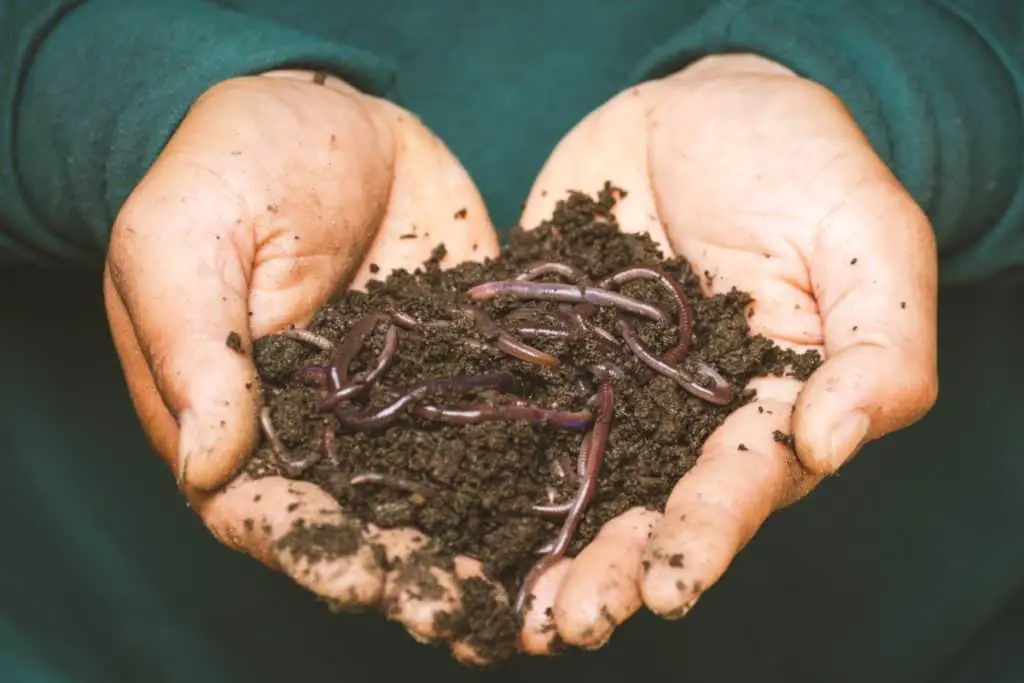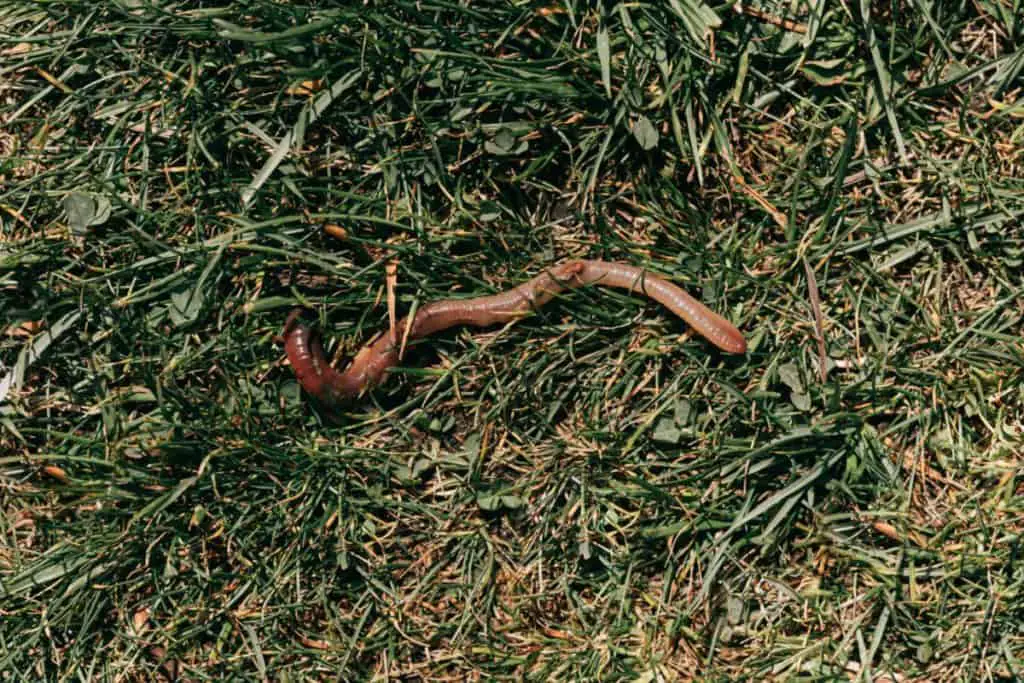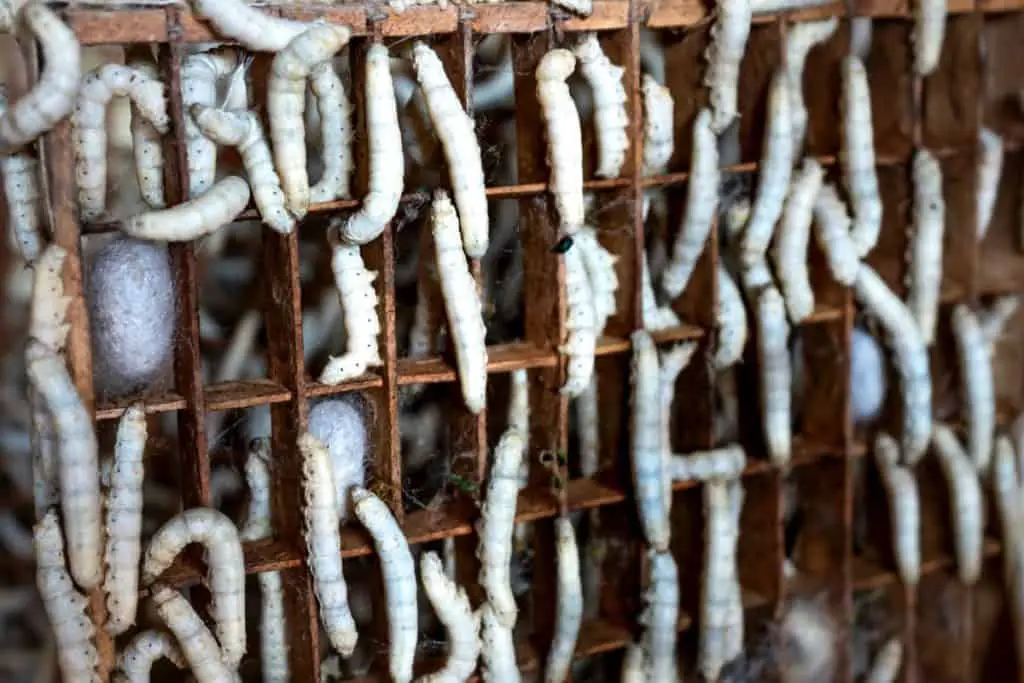
If you are interested in finding out whether a worm is a producer, a consumer, or a decomposer then you’ve come to the right article.
As, in this article, you’ll find the exact answer to this question, and also after you’ve read the answer to the main question then I’ll cover the answers to a few more closely related questions as well to extend your knowledge further.
I hope you learn a lot from this article.
Is A Worm A Producer, A Consumer, Or A Decomposer?
The term “worm” is applied to a large variety of invertebrate animals, many of which are decomposers, but some of which are parasitic consumers.
There are three distinct groups of species that are all called worms:
- Platyhelminthes are flat, non-segmented worms. Well-known species of Platyhelminthes include tapeworms and flatworms.
- Nematodes are non-segmented, thread-like worms. While there are thousands of species of nematodes, the most widely known include roundworms and hookworms.
- Annelids have segmented bodies that are marked with ring-like ridges and valleys, known as annuli. Earthworms are annelids, but so are leeches.
Most Platyhelminthes and nematodes are parasitic, which means that they are secondary or tertiary consumers.
However, there are also free-living (non-parasitic) species of each type, and they are decomposers.
Among the annelids, leeches are parasitic consumers, which attach themselves to hosts and feed on their blood, whereas earthworms are decomposers.
Decomposers break down dead organisms, turning their matter into nutrients that can be used by producers, specifically plants and algae, which convert inorganic nutrients and sunlight into energy to grow.
The energy produced by plants and algae is transferred to the animal species that eat them.
Consumers are organisms that feed upon producers or other consumers.
Watch the video below if you want to see a parasitic hairworm eat a cricket.
Is An Earthworm A Producer, A Consumer, Or A Decomposer?
Earthworms are decomposers.
They play a critical role in the food chain since they recycle organic matter back into the environment (specifically, soil in terrestrial environments and water in aquatic environments).
There are thousands of earthworm species, all of which are members of the class Oligochaeta.
They range in size from less than an inch to well over nine feet in length.
The largest species is the Megascolides australis or the giant Gippsland earthworm.
Although they are usually about three feet long, specimens have been recorded that are almost ten feet long.
Is A Marine Worm A Producer, A Consumer, Or A Decomposer?
Any worm that lives in a marine, or salt water, environment is considered a marine worm.
As with terrestrial worms, there are Platyhelminthes, Nematodes, and Annelids.
However, there are additional groups as well: namely, Phoronida, Hemichordata, and Chaetognatha.
Most nematodes and Platyhelminthes are parasitic, which makes them consumers.
Some hemichordates and most annelids are decomposers.
Phoronids, as well as some hemichordates, are filter feeders, so they are considered scavengers and thus consumers.
Is A Roundworm A Producer, A Consumer, Or A Decomposer?
Roundworms are a group of nematode species, which are non-segmented, thread-like worms.
As a group, Nematoda contains both parasitic consumers and decomposers.
Roundworms are parasites, not decomposers.
So, roundworms are consumers, and also not producers.
Humans sometimes contract roundworm parasitic infections, as do dogs and other animals.

Is a worm a primary consumer?
A primary consumer is an animal that feeds on vegetation or algae.
The vast majority of worms are not primary consumers since they are either decomposers or parasites that infest animals.
However, there are some species of worms, known as eelworms, which are plant parasites.
Since these species feed on host plants, they are primary consumers.
With that said though, when most people talk about worms, they are referring to earthworms, which are decomposers and, therefore, not primary consumers.
Is a Polychaete Worm a primary consumer?
Polychaete worms are a class of over 10,000 species of marine worms.
There are Polychaete worms out there that are herbivores, and which, therefore, are also primary consumers.
But apart from herbivorous Polychaete worms, there are also predatory Polychaete worms, scavengers, filter feeders, and parasitic species.
Is a worm a secondary consumer?
Some species of worms are secondary consumers since they are parasites.
Parasites are organisms that derive nutrition from a host organism to which they live or have attached themselves.
Since the parasitic worms sometimes infest the bodies of herbivores, which are, themselves, primary consumers, these worm species are considered secondary consumers.
Many species of worms are not parasites, though.
They are decomposers, and decomposers are considered neither producers nor consumers.
Decomposers break down dead organisms, turning their matter into nutrients that can then be utilized by plants and algae, which are producers.
Is a worm a tertiary consumer?
Parasitic worms that infest or infect and then feed off secondary consumers are tertiary consumers.
So, parasitic worms can be seen as tertiary consumers whenever they infest a secondary consumer.
Parasites are organisms that live inside or attach themselves to a host organism and then derive nutrition from that host.
Is a worm a quaternary consumer?
Parasitic worms that infest or infect tertiary consumers are quaternary consumers.
For example, roundworms, hookworms, and tapeworms can infect human beings, who are tertiary consumers.
Whenever parasitic worms make their way into the body of an organism then they derive nutrition from the host organism.
Signs of a parasitic worm infection characteristically include unexplained weight loss or, in the case of children, an inability to continue to grow.
The worms can also leave the host’s body by being passed in the stool or even crawling out of the mouth or nose.

Is a Worm a herbivore?
Some worm species are plant parasites, so they can then be considered herbivores.
However, unlike other species that are identified as herbivores, parasitic worms don’t consume an entire plant, but simply the nutrients in the plant.
In this regard, they are somewhat analogous to bees or insects that feed on pollen.
Although these species eat only small parts of plants, they are, nevertheless, herbivores.
The vast majority of worms, however, are not parasitic plant consumers, so they are not herbivores.
Rather, they are either animal parasites or decomposers.
Is a worm a carnivore?
There are parasitic worms that feed on animals, but since they do not kill their hosts to eat them, they are not considered carnivores.
Shovel-headed garden worms are, however, carnivorous since they feed on earthworms.
Is a worm an omnivore?
Some worm species are omnivores.
For example, some phoronids and hemichordates are filter feeders, and they consume both plant and animal matter that is suspended in the water.
Most worm species that feed on both plant and animal matter though are not filter feeders.
Instead, they are decomposers.
Bobbit worms are examples of worms that are mainly identified as omnivores which you can see in action by checking the video below.

